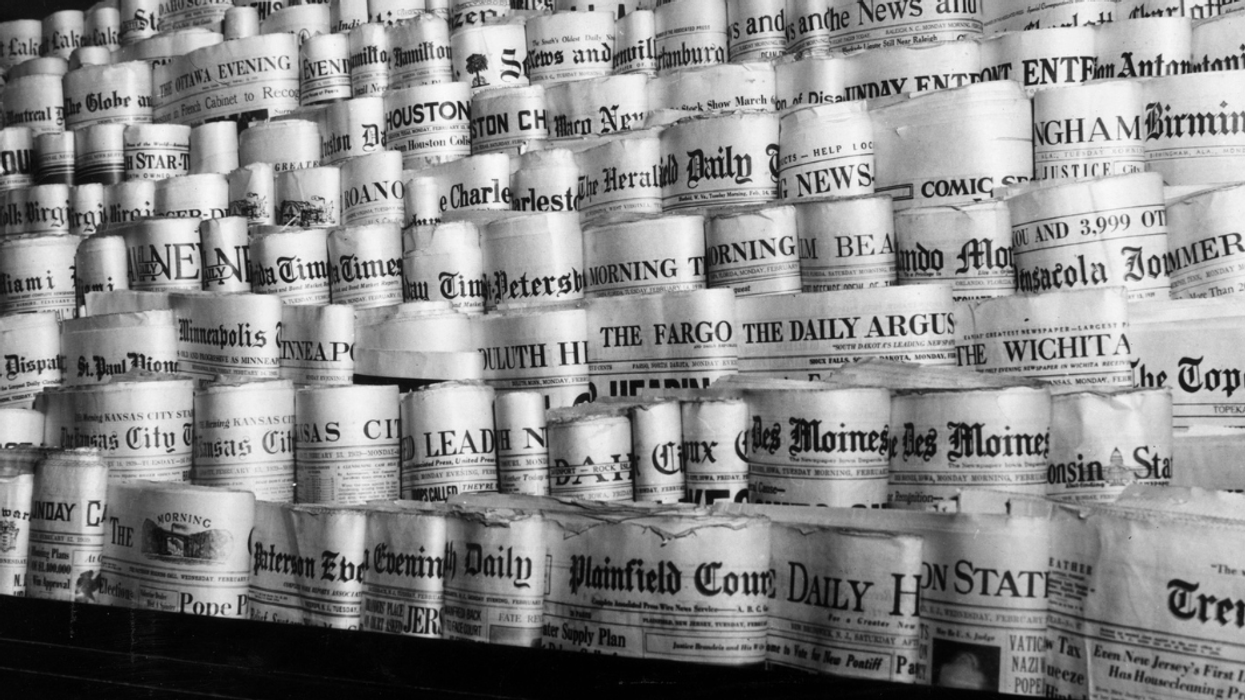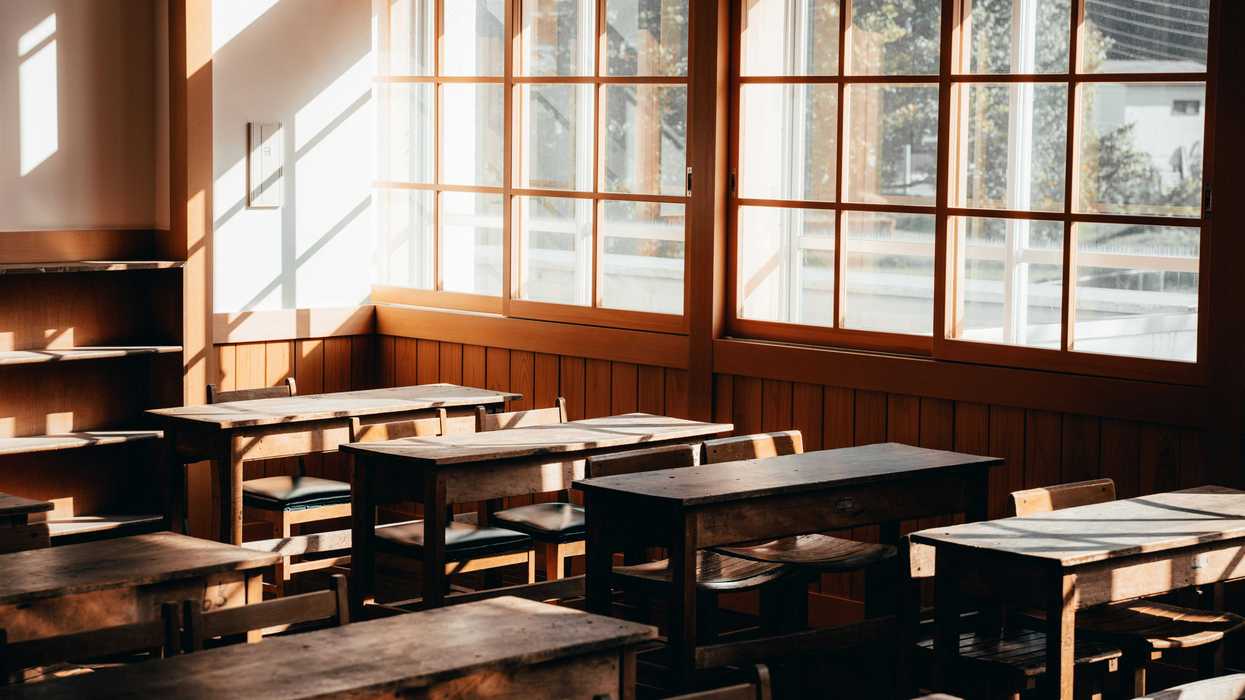“Media and technology are essential to our democracy” is the first statement that appears on Free Press’ website, a suitable introduction to an organization dedicated to reshaping the media landscape. Founded in 2003, Free Press was established to empower people to have a voice in the powerful decisions that shape how media and technology operate in society. Over the years, the media industry has undergone dramatic shifts, with corporate consolidation swallowing up local TV stations, radio outlets, and newspapers. This has led to a decline in independent journalism, resulting in the loss of numerous jobs for reporters, editors, and producers across the country.
Due to the Telecommunications Act of 1996, a piece of legislation that allows anyone to enter the communications business, it was up to Free Press to closely monitor decisions shaping the media landscape when people’s right to connect and communicate is in danger.
Vanessa Maria Graber, a director of journalism and media education, leads the News Voices project, which connects local communities and the newsrooms that serve them through public engagement, advocacy campaigns, and collaborative projects.
Graber was able to work with Free Press on issues related to net neutrality, broadband access, and campaigns surrounding the Federal Communications Commission (FCC). Through the media justice movement, Free Press can focus on protecting free speech, press freedom, fighting hate and misinformation, and holding media and tech companies accountable. The media justice movement is based on the understanding of the intersectionalities between federal policy work and the influence of corporate media on journalism. It aims to challenge power structures and ensure the media reflects the needs of all communities.
With Graber, Free Press has worked on various projects, including Democracy Is.
They will be holding various series of briefings and training sessions for media professionals and communities to protect democracy. One of the most recent discussions focused on the recent elections and understanding how free and fair elections are supposed to work, as well as disinformation surrounding elections and its potential to undermine democracy.
Through educating the public and media professionals, Free Press emphasizes the crucial role media literacy plays in combating disinformation and gaining a better understanding of how technology affects our perception of content. Vulnerable communities are often the most targeted when it comes to disinformation. That’s why the educational work Free Press does can help people recognize what’s real and what’s not. One of their recent polls showed that Spanish speakers in the U.S. are even more likely to feel like they don’t have enough independent news sources to make informed decisions when it comes to voting.
It highlights why Free Press has been calling on social media platforms to take more action to prevent the spread of misinformation, particularly in languages such as Spanish.
They hold media institutions accountable by overseeing telecommunications in the United States and by collaborating with the FCC and FTC. They can monitor all policies and individuals who may potentially pose a risk to the public. Additionally, Free Press can shape regulations that are favorable to the public.
“ A very small number of people own the majority of media in this country and until that changes, we're still going to have a very unbalanced system where majority of people do not have power and access to equitable media, and that's why we have been for the last 20 years fighting for more access to media platforms and to create our media and for smaller groups of people who are not giant media corporations” Graber said.
Through research, advocacy, and activism, Free Press also hosts a media power collaborative that people can join to learn more about journalism policy and media justice issues.
One of their major wins was restoring funds to the New Jersey Civic Information Consortium, which Governor Murphy had proposed cutting to zero. With Free Press launching a campaign in New Jersey to advocate for the funds not to be cut and to be restored, they were able to secure their restoration for $2.5 million.
Graber is currently working on the future of a journalism team that is collaborating on a research project with a dozen newsrooms from across the country, which produce civic journalism, and is trying to understand how people are meeting the information needs of their communities. They will explore the types of innovations and engagement they have had or attempted to achieve.
This report will be published in the fall with the results of that research. In addition, the Free Press’ journalism team is working to pass legislation in states such as California, Illinois, Wisconsin, Massachusetts, and Pennsylvania to provide funding for local journalism projects, including those in New Jersey, through the Civic Information Bill.
Whether it’s privacy, surveillance, misinformation, or the future of local journalism, Free Press continues to fight for a media system that truly reflects and serves the people. Through activism, education, and policy work, they’re creating a space where everyone can have a voice in the media and in our democracy.
Nathaly Suquinagua is a bilingual multimedia journalist with a B.A. in Journalism and a minor in Dance from Temple University and a cohort member with the Fulcrum Fellowship.
The Fulcrum is committed to nurturing the next generation of journalists. To learn about the many NextGen initiatives we are leading, click HERE.



















 Senate Committee on Commerce, Science, and Transportation ranking member Sen. Maria Cantwell (D-WA) (R) questions witnesses during a hearing in the Russell Senate Office Building on Capitol Hill on February 10, 2026 in Washington, DC. The hearing explored the proposed $3.5 billion acquisition of Tegna Inc. by Nexstar Media Group, which would create the largest regional TV station operator in the United States. (Photo by Chip Somodevilla/Getty Images)
Senate Committee on Commerce, Science, and Transportation ranking member Sen. Maria Cantwell (D-WA) (R) questions witnesses during a hearing in the Russell Senate Office Building on Capitol Hill on February 10, 2026 in Washington, DC. The hearing explored the proposed $3.5 billion acquisition of Tegna Inc. by Nexstar Media Group, which would create the largest regional TV station operator in the United States. (Photo by Chip Somodevilla/Getty Images)
